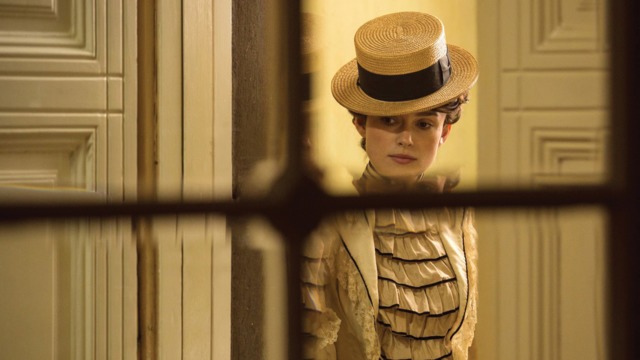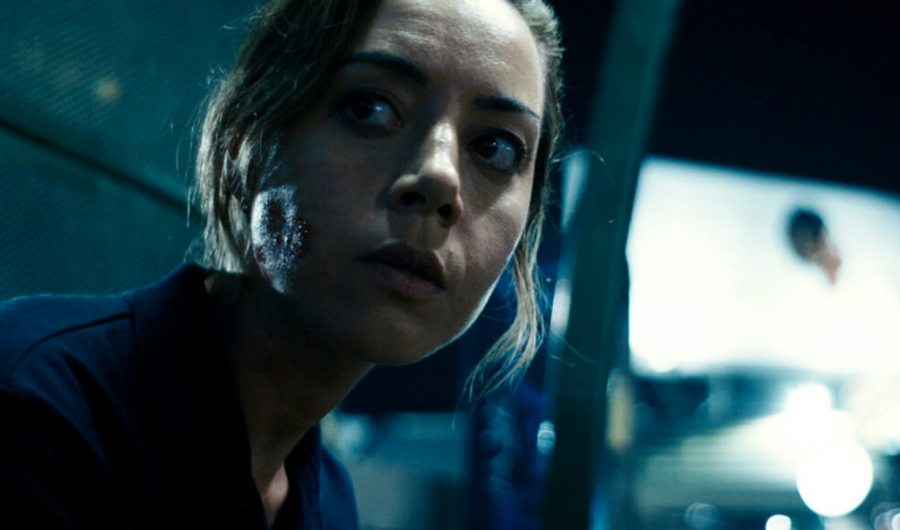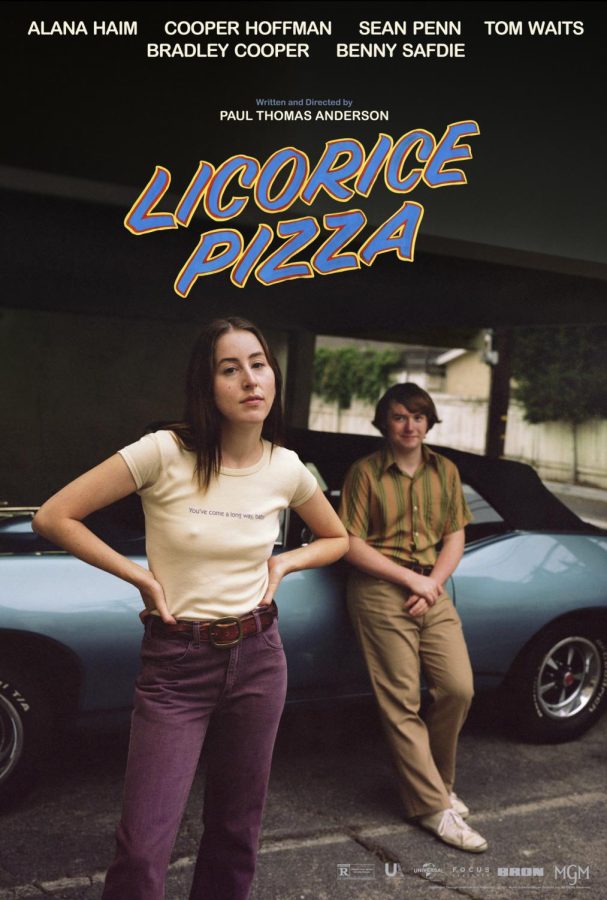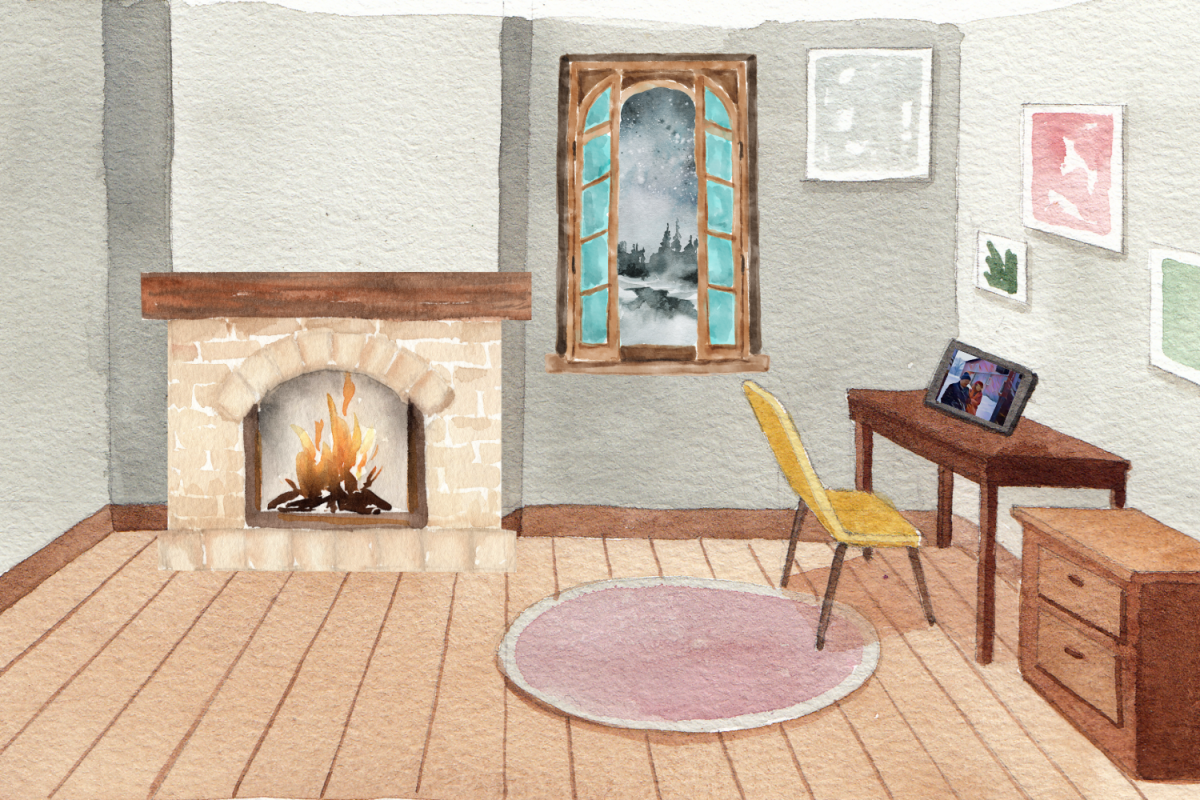Sidonie-Gabrielle Colette, known publicly as “Colette,” was a French novelist writing in the early twentieth century. At 20, she married writer Henri “Willy” Gauthier-Villas, who discovered Colette’s writing talents. She became his principle ghostwriter, penning the Claudine series under his name. What began as malicious compliance turned to forced labor, as her husband would lock her in rooms, forcing her to write for hours. Never could she hold credit or royalties for her novels. Colette left her controlling spouse after 13 long years and found a new life as a music hall performer, where she became romantically involved with the independently wealthy woman Marquise “Missy” de Balbeuf. By 1910 (the point at which the movie ends), at only 37, Colette had lived an incredibly full life. In 2018, director Wash Westmoreland attempted to put this chapter of her life on film.
Colette (2018) stars Keira Knightley (Colette) and Dominic West (Willy), and is written and directed by Westmoreland. The film spans from Colette’s young adulthood to her time as a performer, focusing mainly on her relationship with Willy and the creation of the Claudine novels. Like any film, Colette holds both its strengths and weaknesses. What makes this film differ, however, is the disparity between these strengths and weaknesses.
From a purely technical standpoint, Colette is a marvel. Westmoreland incorporates grand, sweeping shots into nearly every scene, immersing the viewer into early 20th century France. The film also cleverly incorporated the same shot of the same space at two different points in Colette’s life, reminding the viewer of who she once was in that space versus who she had become.
The production design of Colette is impeccable as well. There was not a moment in the film where I believed the actors were anywhere but 1900s Paris. Everything from the sets to the costumes to the props brought the film’s world to life, only deepening the richness and spectacle of Westmoreland’s direction. As great as they may be, however, cinematography and production design are only two aspects of a film.
Colette’s greatest weakness lies in its script, both from a dialogue and plot standpoint. The film’s pacing is all over the place, relying on title cards to tell us when and where we are in the story. The film would linger on a seemingly unimportant scene and then quickly push itself into the next act, confusing the viewer as to where they really are in the story. The characters often felt very one-dimensional, lacking even the most basic arcs. Willy enters the film as a misogynistic dirtbag and ends the film as a misogynistic dirtbag. Missy starts and ends the film as a powerful independent aristocrat. I was uninterested in so many of the characters because they never really changed.
The dialogue was pretty cringe-inducing as well, most notably a scene where Colette and Missy walk romantically through the woods as Missy dryly flirts: “I like nature. And women.” Also, if I had a penny for every time Willy snarks, “It’s what men do,” I’d have enough money to hire a better screenwriter.
The acting in Colette has its moments but often falls flat. Knightley shines as Colette, but is often held back by lines where she explicitly states her emotions rather than subtly showing them. There was also a particular monologue of hers where I couldn’t help but think of Mike Myers bawling in the “OSCAR CLIP” scene from Wayne’s World.
Besides Knightley, most of the cast seems to phone it in. West plays the most obnoxious, pitiful jerk to a point of unbelievability. Denise Gough (Missy) provides no depth to the character other than she’s a lesbian and likes to crossdress. All of these performances were fine, but didn’t reach the brilliance found in Westmoreland’s previous films like Julianne Moore in Still Alice.
Regardless of my personal gripes, I think Colette is an important film. To capture the life of a historical figure who pushed and broke norms of both gender and sexuality in a time as conservative the early 1900s is incredibly powerful. In the weary political climate of 2018, Colette provides an example of expression, identity and empowerment that many in this country need. Regardless of the film’s strengths and weaknesses, I believe that the life of Sidonie-Gabrielle Colette is a story that should be told. Colette blends historical spectacles with contemporary morals, creating a film that, despite its flaws, tells a message relevant to audiences everywhere.
Colette is showing now at the Belcourt Theatre. To see ticket times, click here.
Additional information courtesy Encyclopedia Britannica.



















